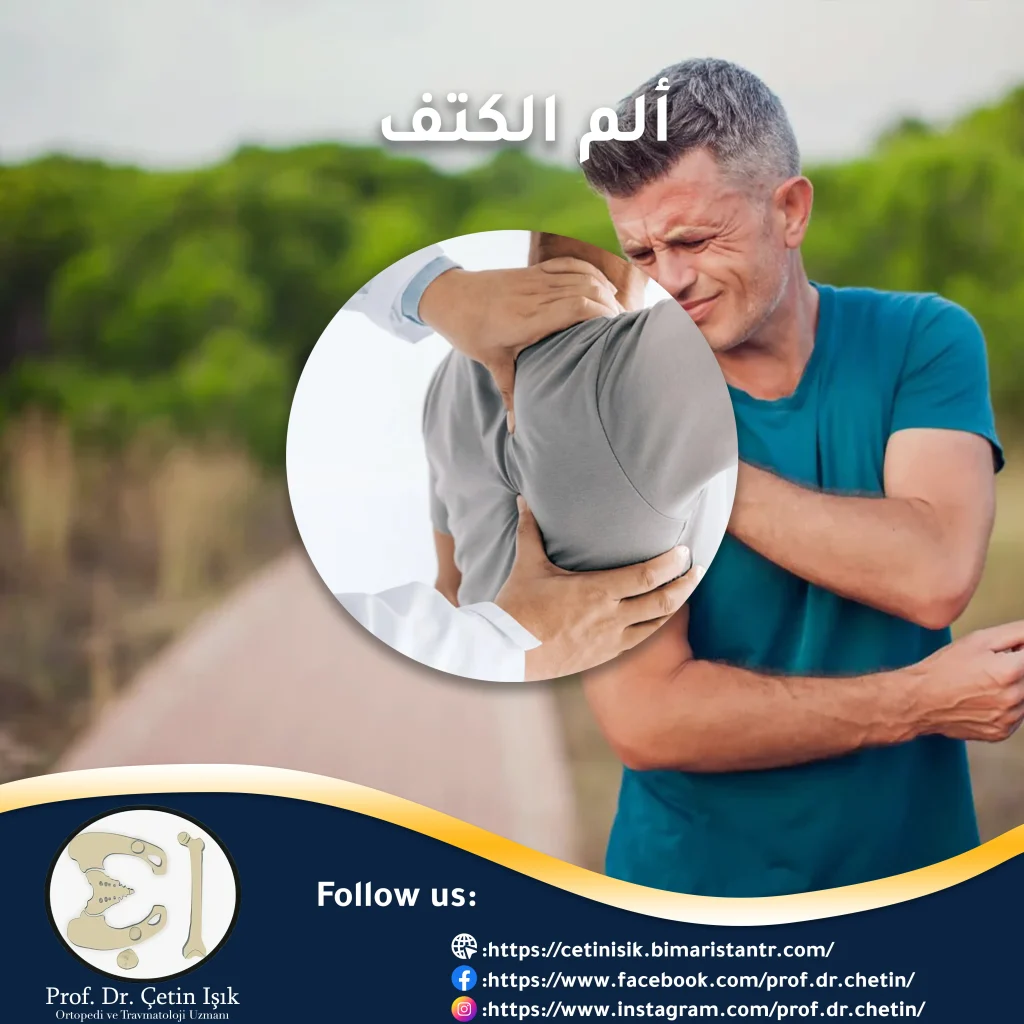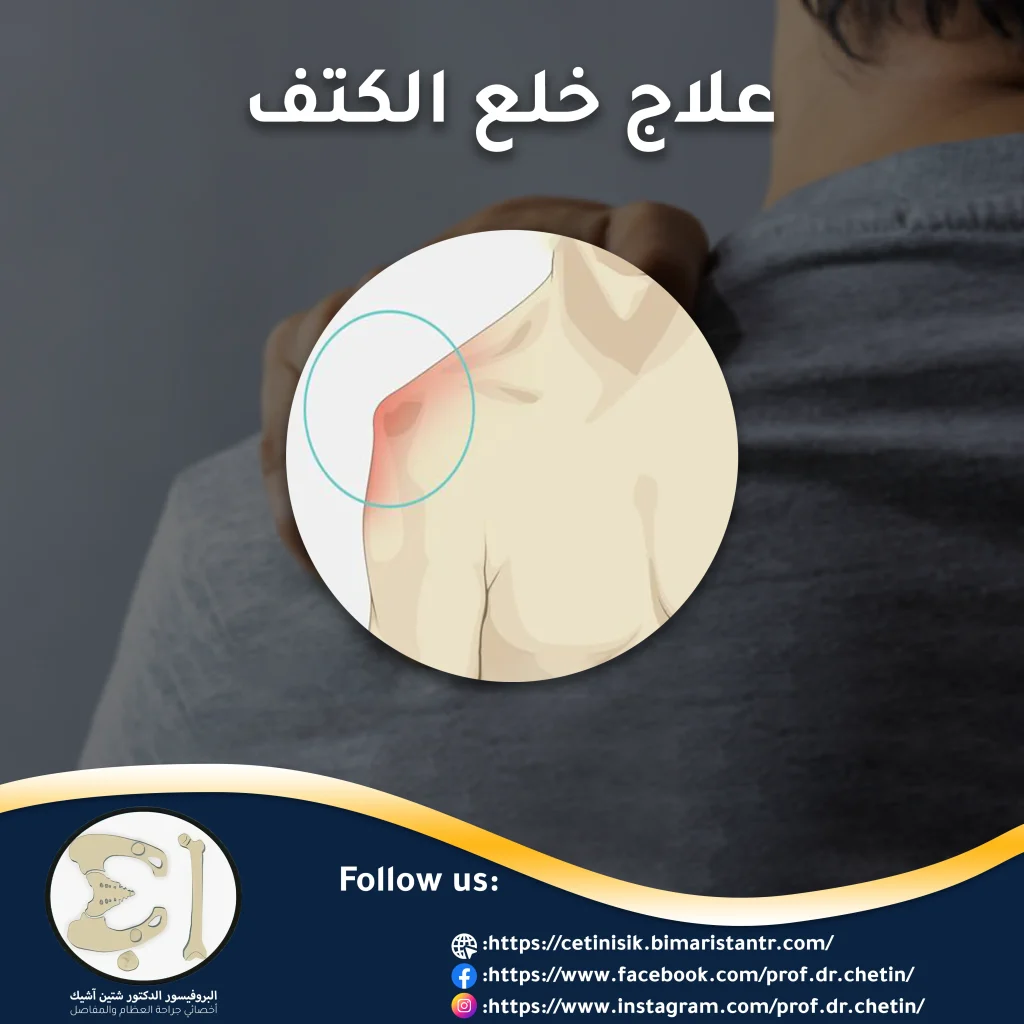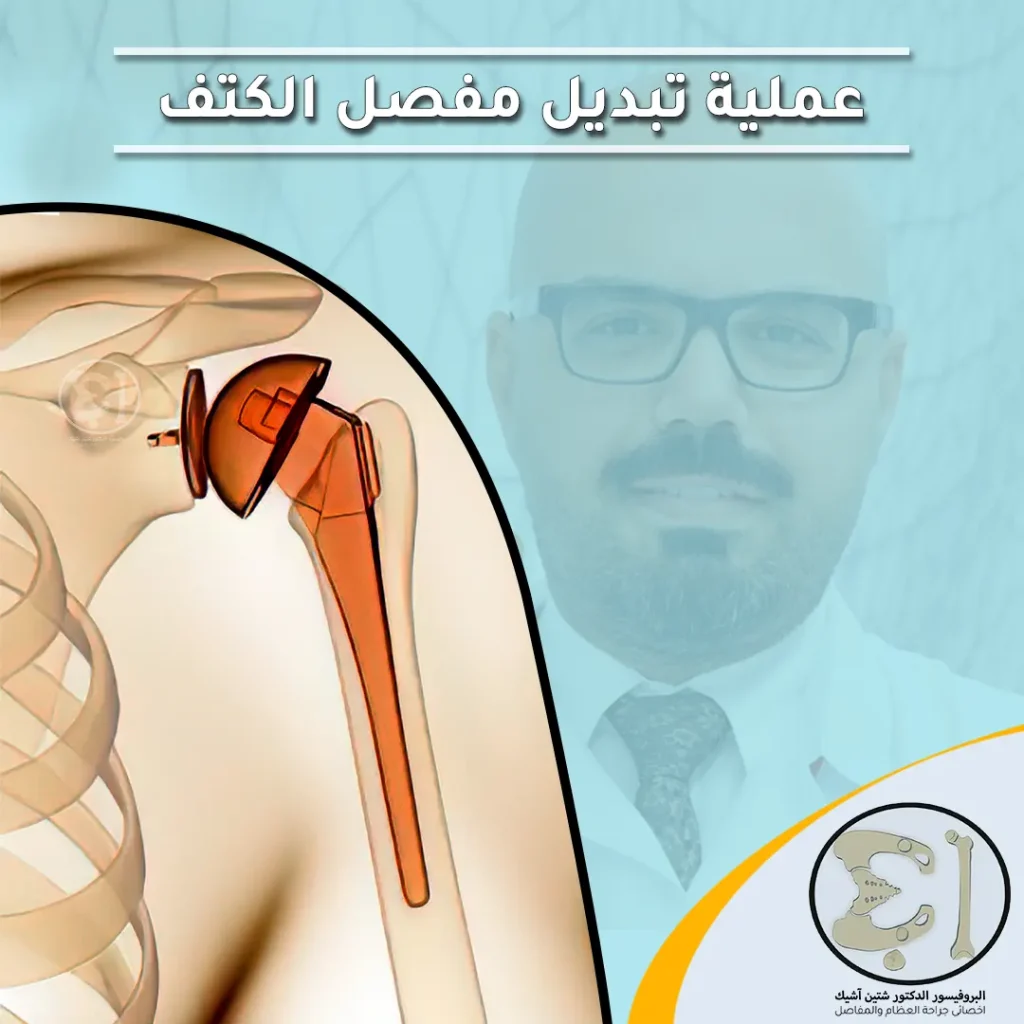Shoulder pain is a common symptom, especially among young people. It occurs for many reasons, including injuries and muscle strain, which leads to limited movement of the shoulder and arm, and this affects a person’s activity and movement.
The shoulder joint is one of the most mobile joints in the body, so its problems are many and its pain is common. Shoulder pain may be caused by heart disease (referred pain). Let us learn together about shoulder pain, its causes, and methods of treatment.
Overview of shoulder pain
Shoulder Pain is a feeling of discomfort and pain in the shoulder area and the surrounding area due to several reasons, which hinders the patient’s movement and affects his activities.
The shoulder joint is a complex and mobile structure consisting of several components:
- Bones: These are three bones, including the humerus (upper part of the arm), the shoulder blade, and the collarbone
- Joints: the glenohumeral joint (the meeting of the humerus with the scapula) and the acromioclavicular joint (the meeting of the upper part of the scapula with the collarbone)
- The joint capsule, tendons, cartilage, ligaments and muscles (rotator cuff) support the shoulder and make it stable
Any damage to the above structures can cause shoulder pain. It is common for shoulder pain to spread to other parts of the body, such as the neck. Shoulder pain can also be caused by damage to the neck or upper back.
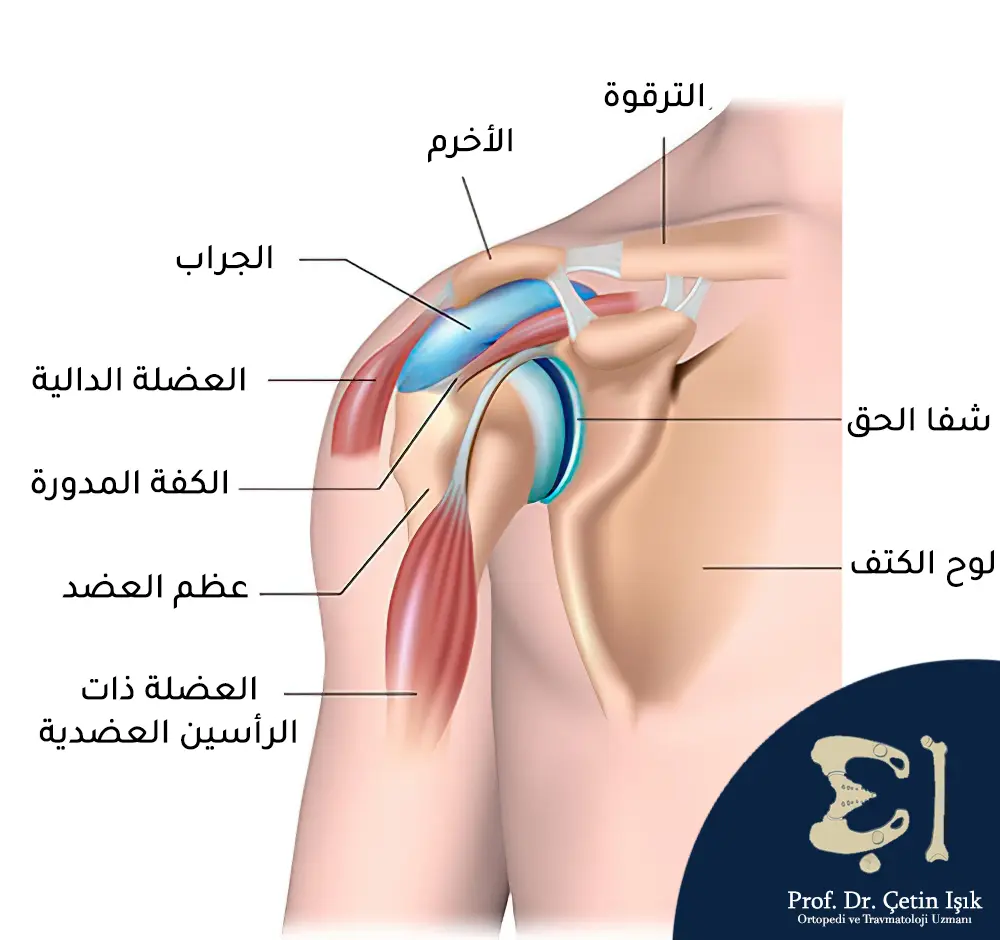
Shoulder pain may be a referred pain resulting from heart disease (angina) (pain in the left shoulder extending to the arm), so the cardiac cause of shoulder pain must be suspected, especially if it occurs during exertion and is accompanied by other symptoms such as chest pain and dyspnea (difficulty breathing). ).
Shoulder pain can be managed in most cases through rest and appropriate drug treatment, but surgery may be required in some cases depending on the cause of the pain.
Causes of shoulder pain
There are many causes of shoulder pain, and not all of them are caused by problems with the shoulder joint or its associated structures. Causes of shoulder pain include:
- Osteoarthritis: Joint cartilage erodes with age as a result of excessive use of the joint, leading to the development of osteoarthritis.
- Capsulitis of the shoulder joint: Inflammation of the synovial membrane occurs due to several reasons, including: Rheumatoid Arthritis Or direct trauma to the joint.
- frozen shoulder Frozen shoulder (adhesive capsulitis): It is a condition in which the shoulder capsule thickens and becomes inflamed and tight. The amount of synovial fluid may decrease and it becomes difficult to move the shoulder.
- Bursitis: A bursa is a small fluid-filled sac that reduces friction between structures. The bursa, which is located between the rotator cuff tendon and the acromion (part of the shoulder blade), can become inflamed, often caused by repetitive movements of the joint.
- Joint injuries: such as dislocations, as the shoulder joint is one of the joints most susceptible to dislocation.
- Soft tissue injuries such as shoulder tendonitis and ligament sprains.
- Neck and upper back problems: These can be a source of shoulder pain. Shallow pain often occurs from the back to the outside of the upper arm.
- Rotator cuff injury: a group of tendons and muscles that maintain stability in the shoulder, may occur Rotator cuff inflammation Or their tendons are torn as a result of an injury (such as a fall or a broken collarbone).
- Axillary nerve damage: This nerve can be injured as a result of a shoulder dislocation or a fracture of the humerus, and causes weakness in moving the arm outward, away from the body.
- Referred pain: Shoulder pain may also be caused by problems in the abdomen (gallstones are a cause of right shoulder pain), heart (angina pectoris is a cause of left shoulder pain), or lungs (pneumonia).
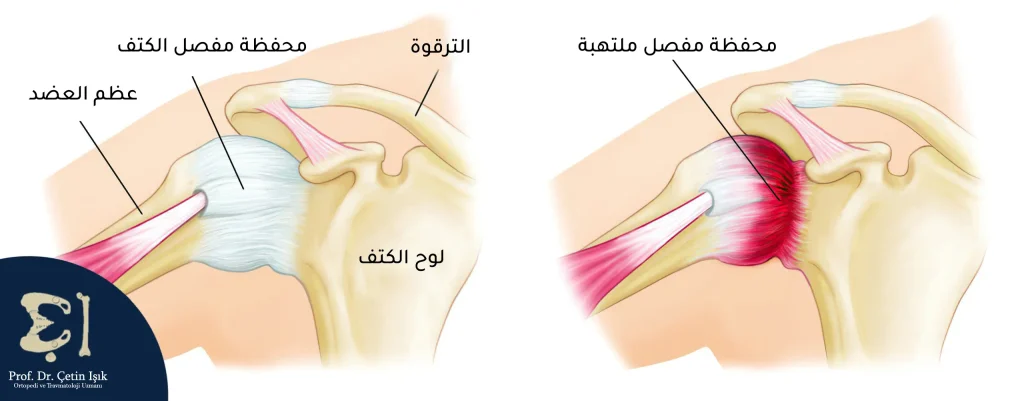
Shoulder pain treatment
Treatment for shoulder pain is determined based on the patient's age, general health, and the nature of the injury. Treatment options for shoulder pain include home treatment, medication, physical therapy, and surgical treatment.
Home and medication treatment
Home and drug treatment options include the following:
- Rest and avoid activities that cause or worsen shoulder pain
- Hot and cold compresses to relieve shoulder pain and inflammation
- Muscle stretching and shoulder massage
- Take over-the-counter pain relievers such as nonsteroidal anti-inflammatory drugs (NSAIDs) such as ibuprofen
- Corticosteroid injections in cases of persistent pain
- Hydrodilatation can be used in cases of frozen shoulder (injecting fluids such as saline into the joint)
Physiotherapy
Physical therapy is one of the initial treatment methods for shoulder pain. It includes practicing some useful exercises and modifying activities that aggravate the pain. These exercises are performed for 6-8 weeks to prevent the pain from returning.
Physical therapy exercises aim to fix many problems such as stiffness and weakness, and also include helping you learn better ways to do daily activities such as bathing, dressing, working or driving.
Physical therapy exercises include stretching (stretching the muscles) and strengthening exercises (strengthening the shoulder and trunk muscles), in addition to other treatments such as ultrasound therapy and electrical stimulation therapy.
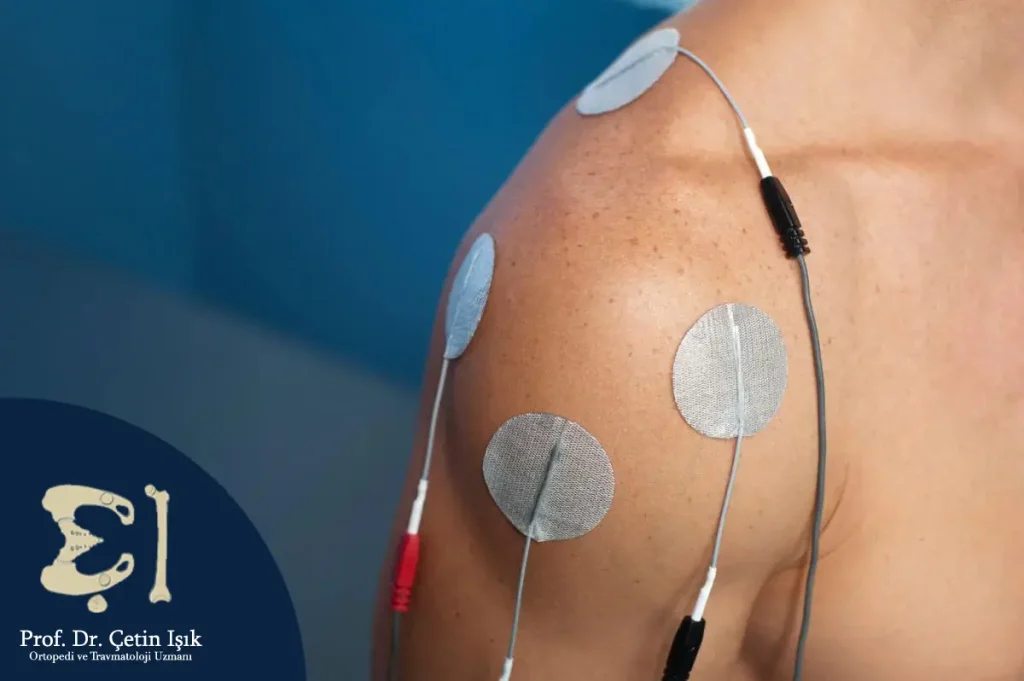
Surgical treatment
Shoulder pain usually improves over time using previous treatments, but in some cases there may be a need for surgery, with the importance of performing previous treatment options before surgery to maintain muscle strength and range of motion as it leads to better results after surgery, and rehabilitation is also necessary. After surgery to achieve good results.
Surgical treatment may be used in the following cases:
- Shoulder dislocation treatment Recurring or recurring
- Rotator cuff tears, acute (due to injury) or chronic (due to aging)
- Severe joint damage due to osteoarthritis and rheumatoid arthritis
Surgical treatment can include both shoulder arthroscopy (to repair joint structures) or... Shoulder joint replacement (full, partial, or reverse full).
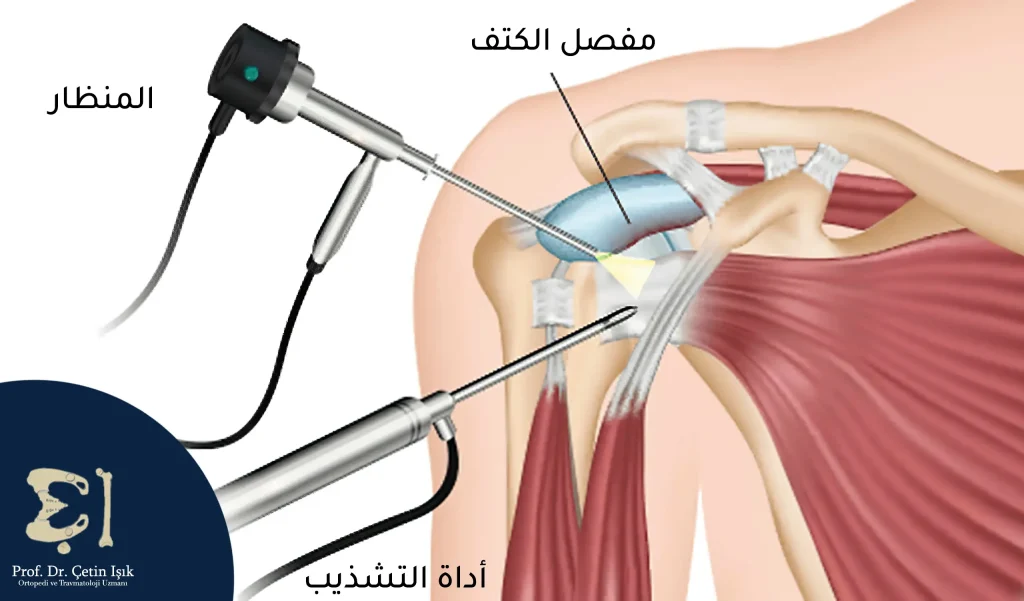
Preventing shoulder pain
Not all cases of shoulder pain can be prevented, especially those resulting from accidents or injuries, but the risk of shoulder injury can be reduced by following the following tips:
- Wear protective equipment
- Stop activity when feeling pain
- Giving the body time to rest and recover after activities
- Stretching, warming up and cooling down before and after exercise
- Avoid lifting heavy objects above the head
Shoulder pain is a common symptom resulting from several causes, some of which are related to damage to the shoulder joint and the structures surrounding it (such as the neck and back), and some are caused by diseases in other parts of the body that may be serious and require special care, such as angina pectoris.
Sources:
Common questions
Shoulder pain can be eliminated by using appropriate treatment methods, which include home treatment (rest, hot and cold compresses), physical therapy (exercises and other methods), up to the possibility of resorting to surgical treatment (arthroscopy - joint replacement).
Cold can cause shoulder pain because cold changes the atmospheric pressure in the atmosphere and this puts less pressure on the body, which leads to tissue expansion and thus causes joint pain and stiffness, including the shoulder joint.
The duration of shoulder pain varies depending on the cause of the pain and the patient’s general health, but shoulder pain usually lasts from 4-6 weeks to fully recover in mild cases, and in severe cases it may last more than 6 months.
Sleeping incorrectly on the shoulder for long periods of time can lead to shoulder pain due to muscle strain.
Voltaren Emulgel is considered one of the best ointments for relieving shoulder pain and treating local infections.


